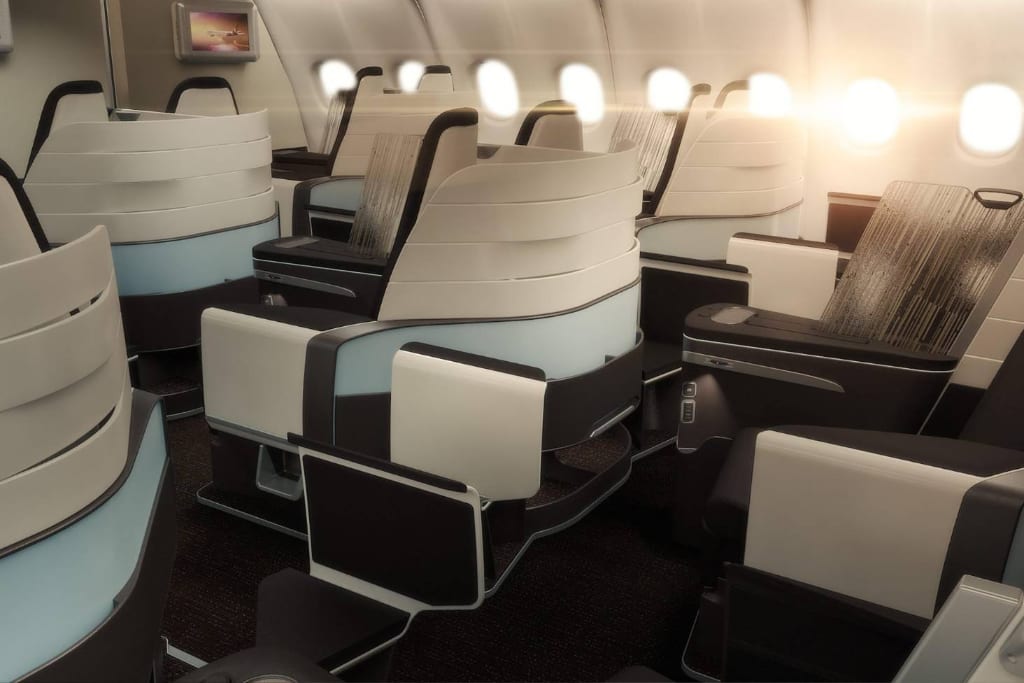Plusgrade Nets $150 Million Investment for Auctioning Travel Products

Skift Take
Plusgrade, a company that helps airlines, cruise lines, and other businesses persuade travelers to spend more, is attracting new investor interest.
On Wednesday, Plusgrade said that Canadian pension fund manager Caisse de Dépôt et Placement du Québec (CPDQ) had taken an equity interest totaling $150 million (CAN$200 million) in Plusgrade. The deal placed a value on the Montréal-based tech company at more than $450 million (CAN$600 million).
Some of the funding is merely switching hands. TA Associates, a private equity firm, sold some of its shares to CPDQ, though it will continue to be a major shareholder along with other investors.
As Skift has noted, more than 70 airlines, such as Air Canada, Air China, Cathay, Etihad, Lufthansa Group, and Singapore Airlines, use its services. That's double the number it served three years ago.
Evaluating the Ambition
While airlines have been the company's signature customer since its founding in 2009, Plusgrade has been expanding recently to other travel suppliers.
On Wednesday Plusgrade announced that Royal Caribbean Cruises would join sister brand Celebrity and competitor Norwegian Cruise Lines as three cruise companies using the tech firm's upgrade platform.
However, despite its product expansion, a majority of airlines and most travelers worldwide have not yet used one of Plusgrade's services.
Many airlines have tended to use Plusgrade's tools only as a supplement, rather than as the main dish, in their ancillary offering.
That reticence may suggest an upper limit to the total addressable market for Plusgrade.
Air Canada is one of three large Plusgrade customers in North America, along with Aeromexico and Hawaiian Airlines. But it only uses Plusgrade for some of its upselling effort.
Many major U.S. airlines, including American, Delta, and United, have spurned Plusgrade's services since the company first launched its offering in earnest in 2011.
In Europe, Lufthansa is a rare company to use Plusgrade's services for its premium cabin offering, given that most airlines worry about irritating their most frequent fliers by hawking premium seats to the highest bidder.
It's unclear to what extent Plusgrade is primarily a tool for getting cheapskates to spend just a little bit more, rather than to unlock significant upselling for high-end products and services.
Plusgrade founder and CEO Ken Harris, 37, dismissed that skepticism.
"We've shown that across geographies and product propositions, from premium to budget, and in new verticals like cruise, that there's a broad and vast appetite for our solutions," Harris said in an interview.
He pointed to the investment announced today that outside backers share his vision of the potential opportunity.
For context on Plusgrade's view of the opportunity, see our earlier story, "Airlines Find Another Way to Wring Out Extra Revenue: Auctioning Unsold Premium Seats."
In its classic model, Plusgrade powers bidding services on the websites and airport kiosks of carriers. Airlines use it to assist with the pricing of products like seat upgrades.
Carriers can use any number of pre-defined criteria to determine if a customer’s bid is acceptable, approving the upgrade when conditions are met.
Plusgrade taps into a supplier's sales and revenue management systems to study passenger profiles and travel patterns to determine their upselling potential as well as supply and demand factors for available inventory.
Market Leader
Plusgrade faces some smaller rivals in the market that have offerings that may overlap with its services. Seatfrog, for one, helps some rail companies auction off premium seats at the last-minute. Seatboost did a pilot with Virgin America but that appears to be on hiatus. Volantio helps airlines encourage travelers at the last minute to switch flights. Some airlines may attempt to develop internal solutions that are comparable, too.
However, no comparable upselling tech rival is growing as fast as Plusgrade, which was ranked in Deloitte’s Canadian Technology Fast 50 list in 2016 and 2017.
A side note: Two years ago, the Caisse invested about $50 million in flight and hotel booking mobile startup Hopper, also based in Montréal.





